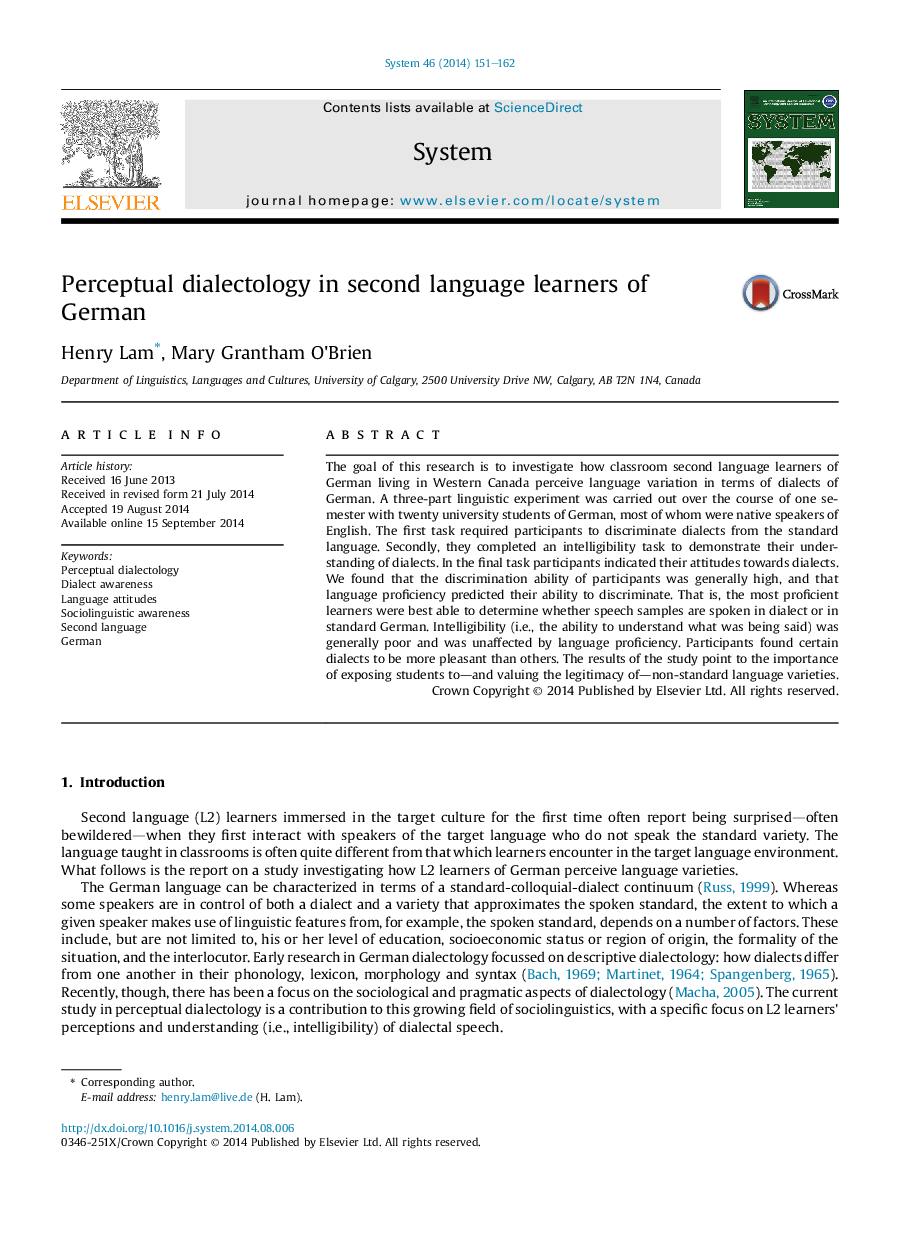| Article ID | Journal | Published Year | Pages | File Type |
|---|---|---|---|---|
| 6849608 | System | 2014 | 12 Pages |
Abstract
The goal of this research is to investigate how classroom second language learners of German living in Western Canada perceive language variation in terms of dialects of German. A three-part linguistic experiment was carried out over the course of one semester with twenty university students of German, most of whom were native speakers of English. The first task required participants to discriminate dialects from the standard language. Secondly, they completed an intelligibility task to demonstrate their understanding of dialects. In the final task participants indicated their attitudes towards dialects. We found that the discrimination ability of participants was generally high, and that language proficiency predicted their ability to discriminate. That is, the most proficient learners were best able to determine whether speech samples are spoken in dialect or in standard German. Intelligibility (i.e., the ability to understand what was being said) was generally poor and was unaffected by language proficiency. Participants found certain dialects to be more pleasant than others. The results of the study point to the importance of exposing students to-and valuing the legitimacy of-non-standard language varieties.
Related Topics
Social Sciences and Humanities
Arts and Humanities
Language and Linguistics
Authors
Henry Lam, Mary Grantham O'Brien,
